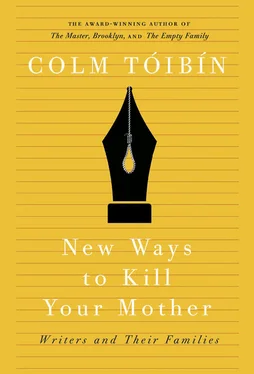In another essay from 1964, ‘Color and American Civilization’, he had more fun at the expense of the neuroses suffered by his white brothers and sisters:
The white man’s unadmitted — and apparently, to him, unspeakable — private fears and longings are projected onto the Negro. The only way he can be released from the Negro’s tyrannical power over him is to consent, in effect, to become black himself, to become part of that suffering and dancing country that he now watches wistfully from the heights of his lonely power and, armed with spiritual traveler’s checks, visits surreptitiously after dark… I cannot accept that proposition that the four-hundred-year travail of the American Negro should result merely in his attainment of the present level of American civilization. I am far from convinced that being released from the African witch doctor was worthwhile if I am now… expected to become dependent on the American psychiatrist. It is a bargain I refuse.
Five years later, writing in The New York Times , he was at his most eloquent, insisting once more that the black population’s burden in the United States could not be changed by legislation but only by something more far-reaching in its implications — the total conversion of the white population, whose moral degeneration and distance from themselves he judged to be abject. ‘I will state flatly,’ he wrote,
that the bulk of this country’s white population impresses me, and has so impressed me for a very long time, as being beyond any conceivable hope of moral rehabilitation. They have been white, if I may so put it, too long; they have been married to the lie of white supremacy too long; the effect on their personalities, their lives, their grasp of reality, has been as devastating as the lava which so memorably immobilized the citizens of Pompeii. They are unable to conceive that their version of reality, which they want me to accept, is an insult to my history and a parody of theirs, and an intolerable violation of myself.
In his fiction, Baldwin sought a new freedom, a freedom to create characters as he pleased. His black characters did not have to be filled with stoical virtue to be destroyed by white forces. His novel Giovanni’s Room did not even have any black characters at all. Nor did his gay characters have their destiny worked out for them by history; he made them too interesting for that. In his journalism he sought to rewrite history before paying attention to politics. In an address to Harlem teachers in October 1963, he said:
What passes for identity in America is a series of myths about one’s heroic ancestors. It’s astounding to me, for example, that so many people really appear to believe that the country was founded by a band of heroes who wanted to be free. That happens not to be true. What happened was that some people left Europe because they couldn’t stay there any longer and had to go some place else to make it. That’s all. They were hungry, they were poor, they were convicts. Those who were making it in England, for example, did not get on the Mayflower . That’s how the country was settled.
By 1979 his version of American history had become more alarmed. In an article for the Los Angeles Times , he wrote:
A very brutal thing must be said: The intentions of this melancholic country as concerns black people — and anyone who doubts me can ask any Indian — have always been genocidal. They needed us for labor and for sport. Now they can’t get rid of us. We cannot be exiled and we cannot be accommodated. Something’s got to give. The machinery of this country operates day in and day out, hour by hour, to keep the nigger in his place.
In that article he called the Civil Rights Movement ‘the latest slave rebellion’.
Five years later in an article for Essence , he continued to muse on the idea of American history and genocide:
America became white — the people who, as they claim, ‘settled’ the country became white — because of the necessity of denying the Black presence, and justifying the Black subjugation. No community can be based on such a principle — or, in other words, no community can be established on so genocidal a lie. White men — from Norway, for example, where they were Norwegians — became white by slaughtering the cattle, poisoning the wells, torching the houses, massacring Native Americans, raping Black women.
Reading his speeches and his journalism, it is, most of the time, easy to imagine, twenty years after his death, how he would respond to contemporary events. Hardly anything that has happened since 1987 would have surprised him. In 1979 he wrote: ‘If they couldn’t deal with my father, how are they going to deal with the people in the streets of Tehran? I could have told them, if they had asked.’ It would be easy to put Baghdad or Basra in that sentence. In 1964 he wrote: ‘People who do not know who they are privately, accept, as we have accepted for nearly fifteen years, the fantastic disaster which we call American politics and which we call American foreign policy, and the incoherence of the one is an exact reflection of the incoherence of the other.’ It would be merely necessary now to change the dates. He would not have been surprised by the counting of votes in Florida; he would not have been shocked by Abu Ghraib; he would not have been shocked by New Orleans. He would have known each time what to say. On 9/11, however, it is harder to be sure of his response, except to suspect that the soaring pity he was capable of could have been matched by the calm eloquent wisdom that was, most of the time, his hallmark. But it is hard also not to remember what he told William Styron in 1960 when Styron and his friends asked him what was going to happen now. ‘Jimmy’s face would become a mask of imperturbable certitude,’ Styron wrote. ‘ “Baby, burn” he would say softly and glare back with vast glowering eyes, “yes, baby, I mean burn . We will burn your cities down .’ ”
Reading his speeches and journalism now, there seems only one fresh hell that has happened in his country that he did not foresee and that would have shocked him deeply. And this is the huge and merciless increase in the prison population, especially of young black males. He saw the context for it, however, and made his own position very clear in his 1964 Playboy article:
The failure on our part to accept the reality of pain, of anguish, of ambiguity, of death, has turned us into a very peculiar and monstrous people. It means, for one thing, and it’s very serious, that people who have had no experience have no compassion. People who have had no experience suppose that if a man is a thief, he is a thief; but, in fact, that isn’t the most important thing about him. The most important thing about him is that he is a man and, furthermore, that if he’s a thief or a murderer or whatever he is, you could also be and you would know this, anyone would know this who had really dared to live.
He did not see the full implications of this, and so in the same year he wrote something that seems naïve now, perhaps the only truly naïve observation he ever made: ‘There is a limit to the number of people any government can put in prison, and a rigid limit indeed to the practicality of such a course.’ And fifteen years later, in the Los Angeles Times , he ended his article on a note of pure optimism:
But black people hold the trump. When you try to slaughter people, you create people with nothing to lose. And if I have nothing to lose, what are you going to do to me? In truth, we have one thing to lose — our children. Yet we have never lost them, and there is no reason for us to do it now. We hold the trump. I say it: Patience and shuffle the cards.
Читать дальше












